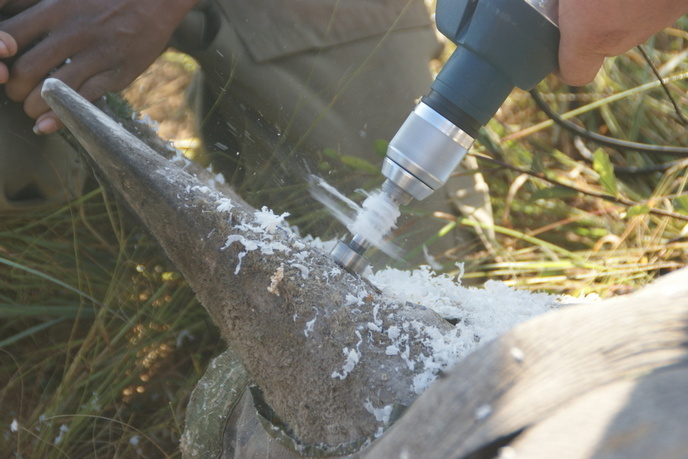We are disappointed to read comments by Matthew Markus, the founder of synthetic rhino horn company Pembient, which appeared in a recent interview with the online publication FUSION.
Markus claimed that “From 2008 to 2014, the wildlife nonprofits presided over a stunning increase in rhino poaching”, and has questioned the non-profit sector’s approach, particularly in demand reduction work focusing on consumers, claiming: “It is time to ask if these groups are making things worse and if they have the data to support what they’ve done.”
Pembient is a company set up to manufacture and sell synthetic rhino horn. After looking into available data about how and why people buy rhino horn, and assessing many other factors, we and our partner, the International Rhino Foundation, published a joint statement on bio-fabricated / synthetic rhino horn earlier this year, stating that we are opposed to opposed to the development, marketing and sale of synthetic rhino horn. You can read the full statement and learn more how and why we came to this conclusion in our Thorny Issues section of our website.
In response to Markus’ specific comments above: between 1994, when black rhino numbers were at an all-time low of around 2,400, and today black rhino numbers have more than doubled. White rhino numbers have risen from approximately 5,500 in the mid-90s to more than 20,000 today. Nonprofits have been supporting the state, community and private sectors in their efforts to conserve rhinos throughout these decades with demonstrable success.
Markus’ use of the term “preside” is bordering on libellous. Its definition – to be in the position of authority in a meeting or other gathering – implies that Markus is accusing wildlife nonprofits, like Save the Rhino, of being the organisers of the poaching crisis. We are not. Far from wanting our organisation to become rich on the donations of people concerned about the extinction of one of the most charismatic species on our planet, our aim is to get rhinos off the IUCN’s Red List of endangered species and to put ourselves out of business.
It is regrettable that Markus’s drive to raise investment funding for his company leads him to seek publicity for a product that no one – experienced state conservation bodies, NGOs, hard-pressed law-enforcement officials – wants. His vested interest in maintaining the demand for rhino horn is doing nothing to solve the present crisis.
Cathy Dean, CEO of Save the Rhino International.









